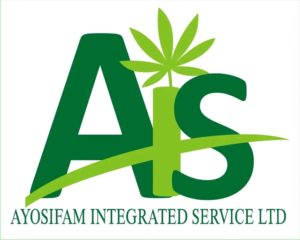Food security is a cornerstone of national stability, and in many regions, it is threatened by factors like climate change, land degradation, and conflicts between farmers and herders. Governments can play a crucial role in mitigating these challenges by establishing dedicated farmland settlements focused on staple crops like cassava and potatoes. This approach not only boosts food production but also creates employment opportunities and fosters peaceful coexistence.
1. Strategic Land Allocation and Settlement Development:
Identification and Acquisition:
Governments should conduct comprehensive land surveys to identify suitable areas with fertile soil, adequate water resources, and favorable climatic conditions for cassava and potato cultivation.
Acquire land through legal and transparent processes, prioritizing underutilized or government-owned land.
Ensure fair compensation and resettlement plans for any displaced communities.
Infrastructure Development:
Develop essential infrastructure within the settlements, including:
Irrigation systems (boreholes, canals, drip irrigation) to ensure year-round water availability.
Storage facilities (warehouses, silos) to minimize post-harvest losses.
Road networks for efficient transportation of produce and inputs.
Electricity supply for processing and storage.
Provision of social amenities like schools, health centers, and markets.
Land Parceling and Allocation:
Divide the land into manageable plots and allocate them to farmers based on transparent criteria, prioritizing experienced farmers, youth, and women.
Provide clear land titles or lease agreements to ensure tenure security.
2. Promoting Sustainable Agricultural Practices:
Training and Extension Services:
Establish agricultural extension centers within the settlements to provide farmers with training on:
Modern farming techniques for cassava and potato cultivation.
Integrated pest and disease management.
Soil fertility management and conservation.
Post-harvest handling and processing.
Training on business management and financial literacy.
Provision of Inputs and Resources:
Facilitate access to high-quality seeds, fertilizers, and other inputs through government-supported schemes or partnerships with private sector suppliers.
Establish cooperative societies to enable farmers to collectively purchase inputs and market their produce.
Provide access to farm mechanization services to enhance productivity.
Sustainable Farming Practices:
Promote crop rotation, intercropping, and other sustainable farming practices to maintain soil health and biodiversity.
Encourage the use of organic fertilizers and biopesticides to minimize environmental impact.
3. Preventing Herder Encroachment and Ensuring Security:
Demarcation and Fencing:
Clearly demarcate settlement boundaries and construct secure fencing to prevent livestock encroachment.
Establish buffer zones between farmland and grazing areas.
Community Policing and Security Measures:
Establish community policing units or collaborate with law enforcement agencies to ensure the security of the settlements.
Implement early warning systems to detect and prevent potential conflicts.
Promote dialogue and conflict resolution mechanisms between farmers and herders.
Grazing Reserves and Livestock Management:
Establish designated grazing reserves with adequate water and fodder resources to accommodate livestock.
Promote controlled grazing practices and discourage open grazing.
Support livestock farmers in adopting modern livestock management techniques.
Legal Frameworks:
Enact and enforce laws that protect farmers’ rights and regulate livestock grazing.
Establish clear mechanisms for resolving disputes between farmers and herders.
4. Job Creation and Economic Empowerment:
Agro-Processing Industries:
Establish agro-processing industries within the settlements to add value to cassava and potato produce.
Create employment opportunities in processing, packaging, and marketing.
Support the development of small and medium-sized enterprises (SMEs) in the agricultural value chain.
Market Linkages:
Facilitate market linkages between farmers and buyers, including processors, retailers, and exporters.
Establish market information systems to provide farmers with real-time price and demand data.
Promote the production of value-added products to enhance market competitiveness.
Financial Inclusion:
Facilitate access to financial services, including loans and insurance, for farmers and agro-processors.
Support the development of agricultural finance institutions and programs.
By implementing these strategies, governments can create thriving farmland settlements that not only boost food security and create jobs but also foster peaceful coexistence and sustainable agricultural development.




